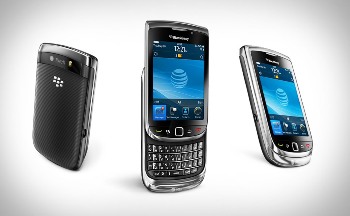BlackBerry Gets Enterprise Mobile Conferencing

A free application lets business users join and set up conference calls from their smartphones
BlackBerry maker Research In Motion took a break from chasing consumer Apple iPhone and iPad sales to do what it does best: Ease the ills of enterprise workers. In its BlackBerry Beta Zone on 8 April, RIM introduced BlackBerry Mobile Conferencing, a free application that simplifies setting up, accepting and participating in conference calls.
BlackBerry Mobile Conferencing integrates with a BlackBerry smartphone’s Calendar application; when conference time rolls around, a pop-up window appears, enabling the user to dial in with just a click – instead of having to search for a phone number and paste in an access code.
If there are multiple phone numbers in the invitation – for inside or out of the country, say – the application knows which one to use. And should a person be dropped from the call, reconnecting happens with just a click.
Conference calling features
The app also simplifies the process of setting up a conference call from a BlackBerry, enabling users to “turn almost any meeting invite into a conference call with just a single click”, RIM explained in the Beta Zone. Reservationless or recurring conference information can also be stored to a conference profile on one’s phone, so it can easily be added to meetings scheduled from the device.

Finally, the app is also discreet with moderator information, keeping codes hidden from conference attendees.
Interested BlackBerry owners can find the app listed under “Eligible Programs” in their Beta Zone account. It just requires BlackBerry OS 5 or higher.
Likely another helpful enterprise tool – should it ever arrive – is the BlackBerry PlayBook, RIM’s promised contribution to the tablet fray. Introduced in September 2010, the tablet was, after a few delays, expected to be just days away – on 11 March, Boy Genius Report picked up a newsletter from a Canadian Sears Affiliate Program announcing to members that the PlayBook would be available for preorder on 12 March and begin shipping on 10 April.
At the CTIA Wireless event on 23 March RIM put an end to the rumours, announcing that the PlayBook would begin shipping in the United States and Canada on 19 April, starting at $499 (£300). During the company’s earnings call the next day, co-chief executive Jim Balsillie said the most important thing was to get the PlayBook out as soon as possible, “but to make sure it’s stable”. By 19 April, he believed that would be the case.
Plus, he added, “it’s got a great over-the-air utility for upgrading… it’s got so many things that future-proof it. … It’s a winner, it’s such a winner.”
iPad competition
According to a new report from Taiwan-based DigiTimes, however, the PlayBook may already be losing out to the Apple iPad. According to a 7 April report, RIM is being forced to delay the PlayBook because Apple, churning out iPad 2 tablets, is using up all of the appropriate manufacturers’ touch-panel capacity.
“Sources from touch-screen panel makers also pointed out that PlayBook shipments were postponed for about a month from the original schedule due to a delay in software testing,” the site reported, “as well as shortage of touch panels because Apple already booked up most of the available capacity.”
Apple is estimated to have sold one million iPad 2s on the device’s debut weekend, and on 25 March began selling the tablet in an additional 25 countries.
RIM has invested heavily in the PlayBook and has a good deal riding on its success. Its earnings guidance for the first quarter of fiscal 2012 was lower than Wall Street expected – and again due to the PlayBook.
“We’re investing in opening up a new category, bringing in a new platform. This is no time for half measures,” Balsillie said during the call. “This is a time of enormous investment and transition.”